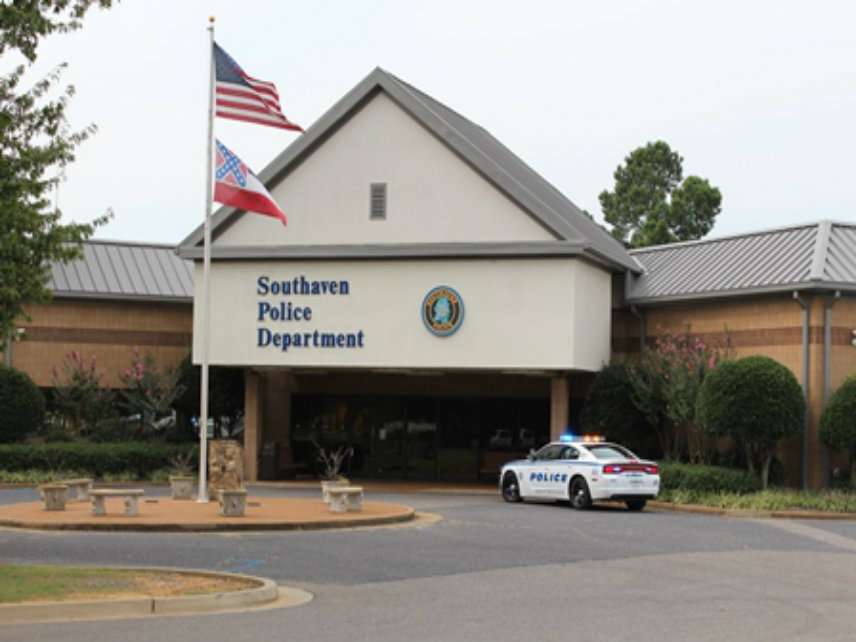Police Serve Warrant to Wrong Address, Kill Man Who Lives There
Authorities say they were trying to serve an arrest warrant for a man wanted for assault.

Ismael Lopez awoke to a commotion outside his front door on July 23rd, shortly before midnight. Moments later, he was dead.
A police officer shot Lopez after he allegedly refused to put down the gun he was holding when he answered the door. Police were looking to serve an arrest warrant for an assault that had occurred earlier that day. Only after Lopez had died did they realize their mistake: they had gone to the wrong house.
Lopez was not the man they were looking for, nor was he wanted by police for any outstanding warrants. His death was entirely preventable—another casualty in the long list of victims of excessive force on the part of law enforcement.
It should go without saying that the above statement is not an indictment of all police officers, but it is nothing short of dishonest to attribute these sorts of incidents to just a few bad apples as people have often done in the past. The rot is much more severe than many Americans are willing to admit. As police departments across the country have become more militarized, incidents like these are far from unheard of, and it's impossible not to conclude that law-enforcement culture and norms play a role.
It's been over two weeks since Lopez was shot, and the names of the Southaven Police Department officers involved have yet to be released. While many police departments do release the names of those in "officer involved shootings," it's not a uniform practice across the country. Police union rules often govern when names are released to the public, if at all. According to a Washington Post report from 2016, around 20 percent of officers involved in fatal shootings do not have their names disclosed.
This practice undermines public trust in the police and prevents bad cops from being held accountable for their actions. Police officers do deserve some privacy protections, as all citizens do, but they are also given powers to take away a person's freedom and in some cases their life. Powers like those demand increased accountability to protect against abuse.
There have been protests outside the Southaven Police Department in the weeks following the shooting, with locals demanding an explanation for Lopez's death and greater transparency from the authorities. "We want the truth to come out. We want justice to be served for Mr. Lopez," said Pastor Rolando Rostro, the organizer of the protests, adding that "there's a lot of stuff that should've been released by now and those officers names should've; they serve the public."
When a local news channel asked the police department if the officer who fired shots was still patrolling the streets, the department responded, "We don't discuss personnel issues."
By refusing to disclose the names of the officers involved, there's no way of knowing if these individuals have been involved in similar incidents in the past. As Reason's Ed Krayewski has covered extensively before, there's no database or registry for police with histories of abuse of power and excessive force. It's about time we had one.
In Lopez's case, the initial police report appears to have been sloppily compiled, listing Lopez, who is Hispanic, as "caucasian" and labeling him as an "offender." The family's attorneys are calling for the resignation of the police chief and several other city officials for their handling of the case. They claim that the official story of investigators is not accurate, using pictures of the crime scene as evidence that Lopez was not pointing a gun out the door at officers as had been claimed previously.
"You can track the trace of the bullets. Three bullets went into that door and the door was shut when those bullets went into the door. My investigative team has concluded it was direct line. There were three bullets. There is no way the door was cracked open and someone was there," said Murray Wells, one of the family's attorneys.
The recently released death certificate would seem to partially confirm these claims.
In any case, Lopez would have been perfectly justified in grabbing his gun given the circumstances. Plenty of people wouldn't hesitate to grab a firearm if they heard banging at their door in the middle of the night. And given that he wasn't actually an "offender," Lopez would have had no reason to think it was the police on his porch.
It remains to be seen if charges will be placed against the officer who fired the fatal shot, but there's a good chance this case may turn out like the others before it. Saying "I feared for my life" will mean a lot coming from the officer involved. It may even get him/her out of criminal charges.
But Ismael Lopez probably feared for his life too. It's a shame he's not alive to say it.


Show Comments (107)